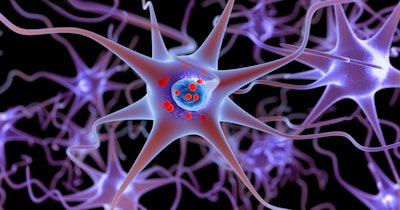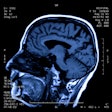
A protein biomarker present in cerebrospinal fluid (CSF) and blood plasma may be useful for the early diagnosis of Parkinsonian disorders.
In a study published in Nature Aging, a team led by scientists at Lund University in Sweden used a multiplex immunoassay from Olink Proteomics to estimate the levels of 2,943 proteins in the CSF of 81 patients with Lewy body disease and 347 controls from the Swedish BioFinder 2 cohort.
Lewy body disease is one of the Parkinsonian disorders, which include atypical Parkinson's syndromes as well as Lewy body disease, Parkinson's disease, and Lewy body dementia. Parkinsonian disorders are among the most common neurodegenerative disorders. Although there is evidence that the neuron decay associated with these conditions begins before clinical symptoms appear, no early biomarkers for Parkinsonian disorders have been found thus far.
The researchers found that the patients with Lewy body disease had elevated levels of DOPA decarboxylase (DDC), an enzyme that converts levodopa into dopamine, which was depleted in the patients. They also noted high CSF DDC levels in patients in the preclinical stages of Lewy body disease, suggesting that it could be a potential marker for detecting the disease early, without cognitive impairment and aiding in prediction of progression to clinical disease.
The authors suggested that the increased production of DDC may be a way that neurons that usually receive dopaminergic input compensate for low dopaminergic levels.
Patients with atypical Parkinsonian disorders, such as multiple system atrophy, also had increased CSF DDC levels; however, people with non-Parkinsonian neurodegenerative diseases did not show the increased DDC levels.
When the team measured levels of 92 proteins in 174 patients and controls from the BioFinder 1 study, they found that DDC levels were again significantly higher in Lewy body disease and atypical Parkinsonian patients than in controls.
The researchers say that future studies are needed to assess their findings; they suggest longitudinal data be used to assess changes in biomarker levels over time. The authors concluded that “if the plasma DDC results are replicated in other cohorts, this biomarker could be important for early and even preclinical detection of Parkinsonian disorders and predict future conversion to clinical [Lewy body dementia].”



















